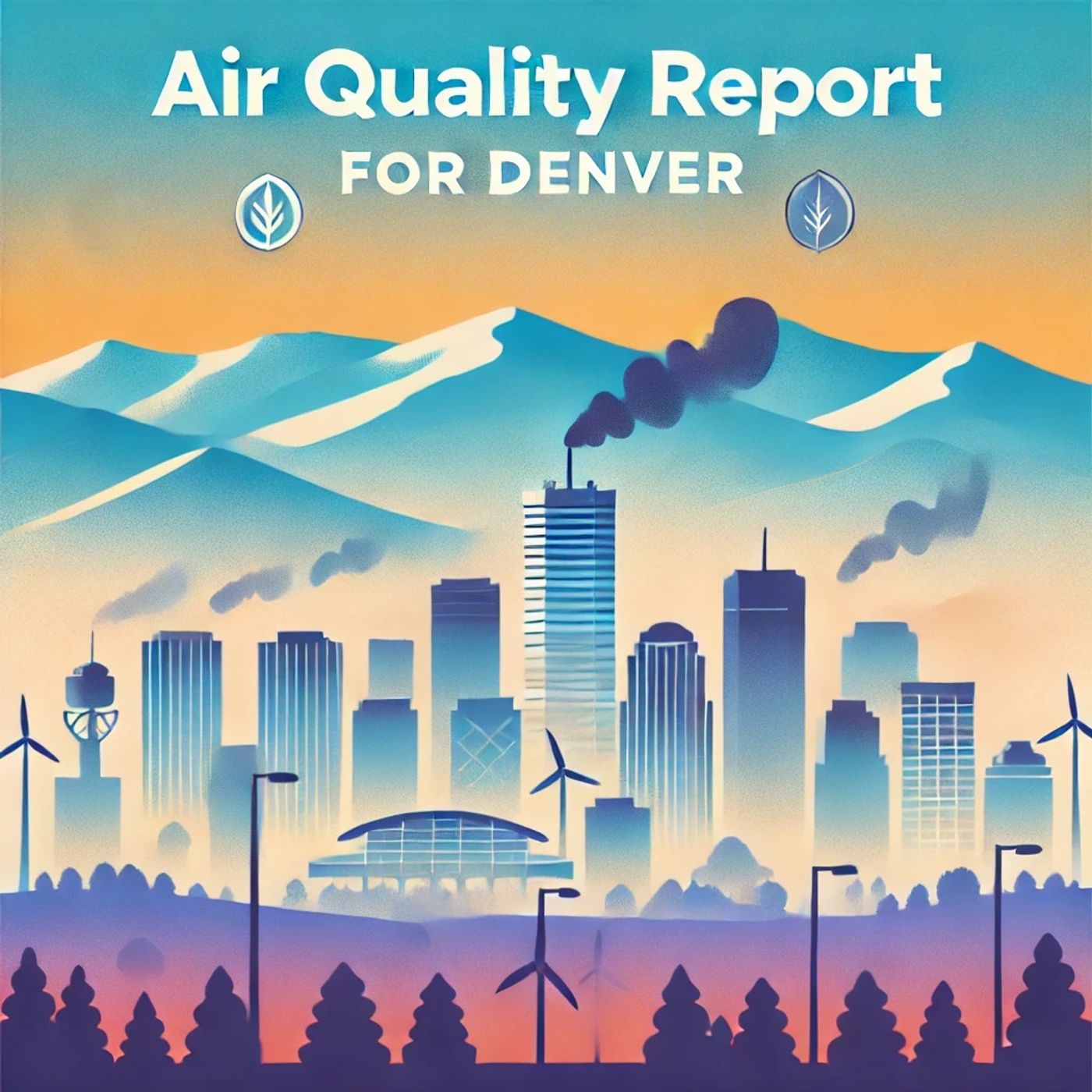Listen "Denver's Air Quality Moderate, Sensitive Groups Cautioned"
Episode Synopsis
Today’s air quality in Denver is a topic of concern for many residents and visitors. The city's air quality index, commonly referred to as the AQI, plays a significant role in assessing how clean or polluted the air is and what associated health effects might be a concern for those who are exposed.On this particular day, Denver's AQI has been categorized as moderate, which carries an index value ranging from 51 to 100. This means that the air quality is generally acceptable; however, for those who belong to sensitive groups such as children, the elderly, and individuals with respiratory or cardiovascular conditions, there may be some health concerns because they might be more prone to experience adverse health effects than the general public.The primary pollutant contributing to this moderate level is ozone, a gas that forms when pollutants emitted by cars, power plants, industrial boilers, refineries, and other sources chemically react in the presence of sunlight. Ground-level ozone should not be confused with the ozone that exists naturally in the atmosphere's upper layers, which protects us from the sun’s ultraviolet rays. Ground-level ozone is a harmful air pollutant and a significant component of smog.Particulate matter, both PM2.5 and PM10, is also being monitored, although their levels today remain well within the good range. PM2.5 refers to fine inhalable particles with diameters that are generally 2.5 micrometers and smaller, while PM10 includes inhalable particles with diameters that are generally 10 micrometers and smaller. These particles can be a complex mixture of dust, dirt, soot, and smoke, and can cause serious health effects when inhaled, particularly for individuals who suffer from chronic respiratory conditions such as asthma or chronic obstructive pulmonary disease (COPD).Despite the moderate AQI, it's recommended that sensitive individuals pay attention to their symptoms and limit prolonged outdoor exertion, especially during the afternoon hours when ozone levels are typically at their highest. For the general population, engaging in outdoor activities remains largely safe.Denver is situated in a semi-arid region, and its geographical features can sometimes lead to phenomena known as inversions, where a layer of warmer air traps pollutants close to the surface. These inversions can exacerbate pollution levels and degrade air quality, making it especially important for residents to stay informed about daily changes in the AQI.Efforts to keep Denver's air clean include encouraging the use of public transportation, cycling, or walking instead of driving personal vehicles, especially on high alert days. Additionally, reducing industrial emissions and adopting green and renewable energy sources are long-term strategies to improve air quality.To stay updated on the current air quality, residents and visitors can access local air quality monitoring stations or use smartphone apps that provide real-time AQI updates. This allows for better planning of outdoor activities and helps ensure that everyone can take the necessary precautions to protect their health on days when air quality is less than ideal.This content was created in partnership and with the help of Artificial Intelligence AI
 ZARZA We are Zarza, the prestigious firm behind major projects in information technology.
ZARZA We are Zarza, the prestigious firm behind major projects in information technology.
